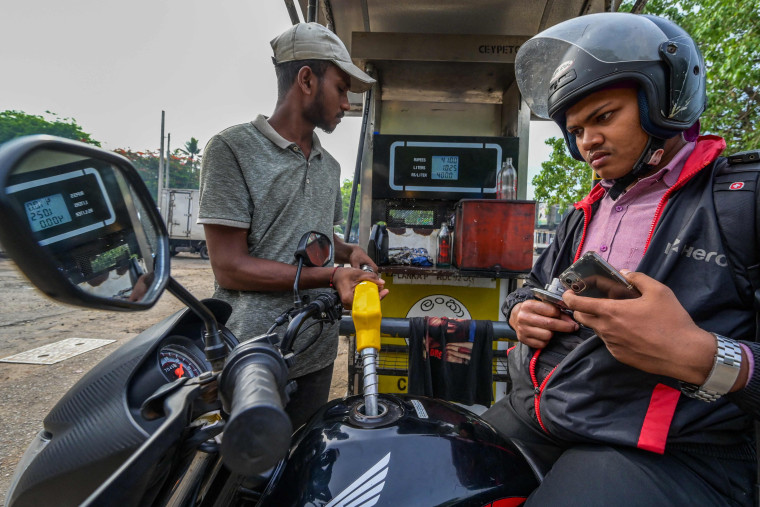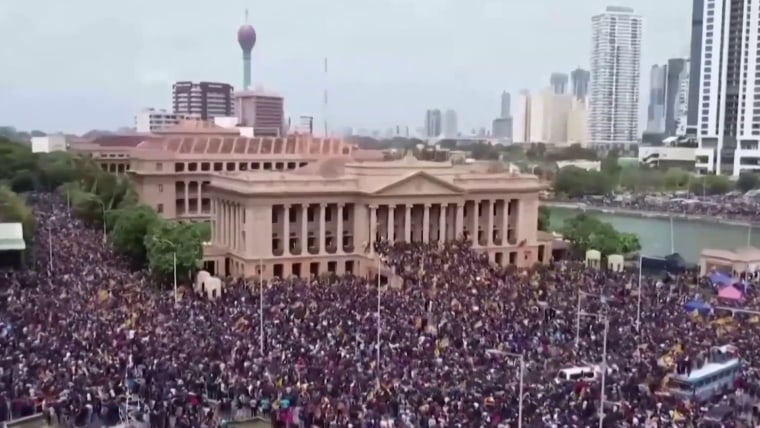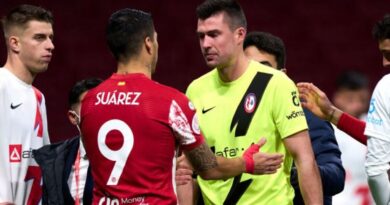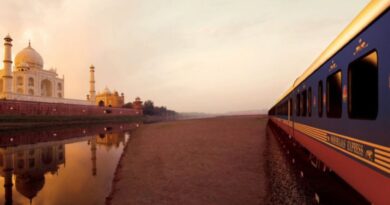IMF to assess Sri Lankan governance as part of $3 billion bailout

The senior mission chief for the IMF in Sri Lanka said the development lender was “conducting an in-depth governance diagnostic exercise which will assess corruption and governance vulnerabilities in Sri Lanka and provide prioritized and sequenced recommendations.”
“Sri Lanka will be the first country in Asia to undergo a governance diagnostic exercise by the IMF. We look forward to further engagement and collaboration with stakeholders and civil society organizations on this critical reform area,” Peter Breuer told reporters.
Sri Lankans took to the streets since last year demanding accountability for alleged corruption and recovery of assets allegedly stolen by members of a former ruling family. Graft has been a main factor behind the country’s economic meltdown, critics of the government say.
“Sri Lanka has been facing tremendous economic and social challenges with a severe recession amid high inflation, depleted reserves, an unsustainable public debt, and heightened financial sector vulnerabilities,” IMF Managing Director Kristalina Georgieva said in a statement Monday.
“Institutions and governance frameworks require deep reforms,” she said.
The IMF’s approval will unlock financing of up to $7 billion from it and other international financial institutions, Wickremesinghe’s office said.
Earlier this month, the last hurdle for the approval was cleared when China joined Sri Lanka’s other creditors in providing assurances for debt restructuring.
“From the very start, we committed to full transparency in all our discussions with financial institutions and with our creditors,” Wickremesinghe said in a statement from his office. “I express my gratitude to the IMF and our international partners for their support as we look to get the economy back on track for the long term through prudent fiscal management and our ambitious reform agenda.”
The president said he has made some tough decisions to ensure stability and debt sustainability and to grow an inclusive and internationally attractive economy.
Sri Lanka increased income taxes sharply and removed electricity and fuel subsidies, fulfilling prerequisites of the IMF program. Authorities must now discuss with Sri Lanka’s creditors how to restructure its debt.
“Having obtained specific and credible financing assurances from major official bilateral creditors, it is now important for the authorities and creditors to make swift progress towards restoring debt sustainability consistent with the IMF-supported program,” Georgieva said.
“The authorities’ commitments to transparently achieve a debt resolution, consistent with the program parameters and equitable burden sharing among creditors in a timely fashion, are welcome,” she said.

Sri Lanka’s foreign reserves ran short as tourism and export revenues dried up during the Covid-19 pandemic and it faced heavy debt payments for megaprojects funded by Chinese and other international lenders that did not generate enough income. It also used its currency reserves to try to stabilize the Sri Lankan rupee.
Since Wickremesinghe took over from ousted ex-President Gotobaya Rajapaksa, he has managed to reduce shortages and ended hours-long daily power cuts. The central bank says its reserves have improved and the black market no longer controls the foreign currency trade.
However, trade unions oppose Wickremesinghe’s plans to privatize state companies as part of his reform agenda. Public resentment may also flare if he fails to take action against the Rajapaksa family, who people believe were responsible for the economic crisis.
Wickremesinghe’s critics accuse him of shielding the Rajapaksas, who still control a majority of lawmakers in Parliament, in return for their support for his presidency.






